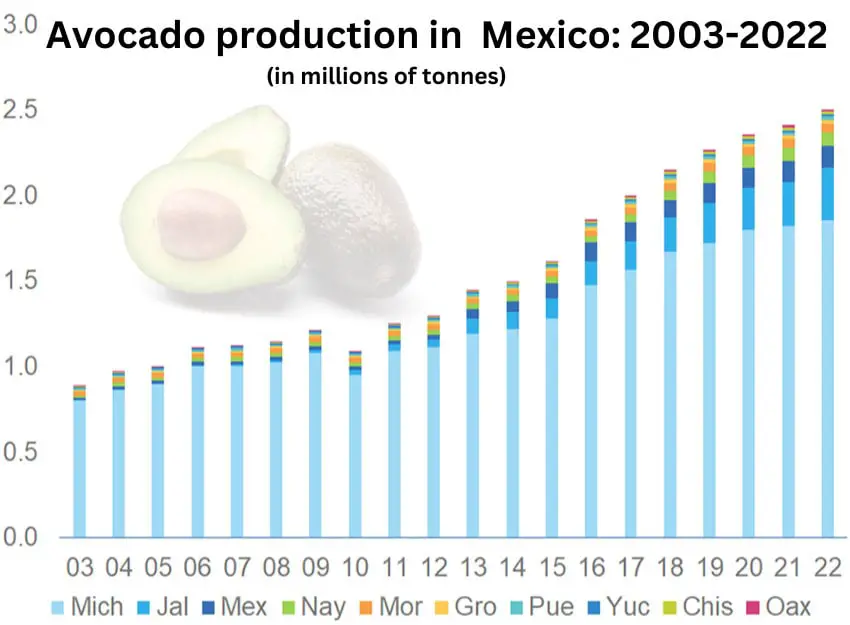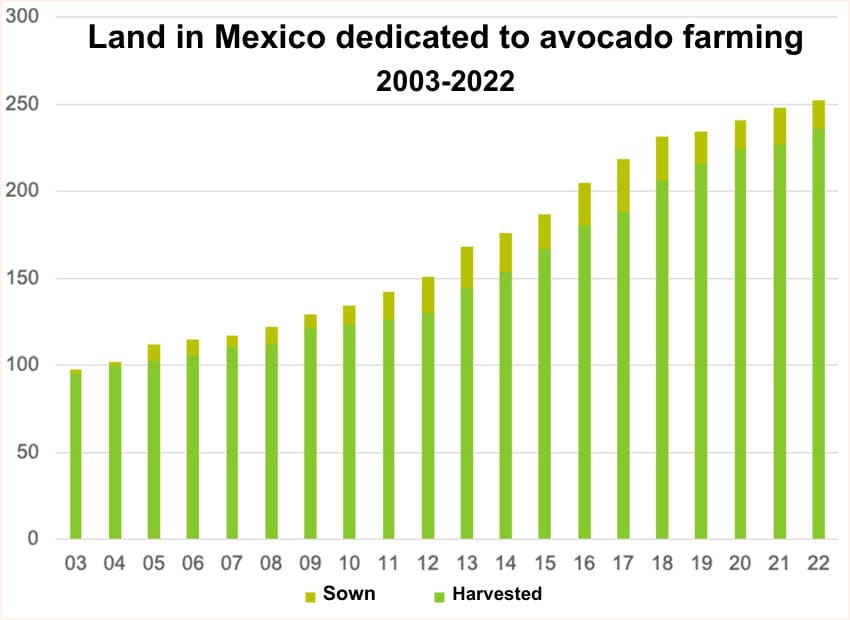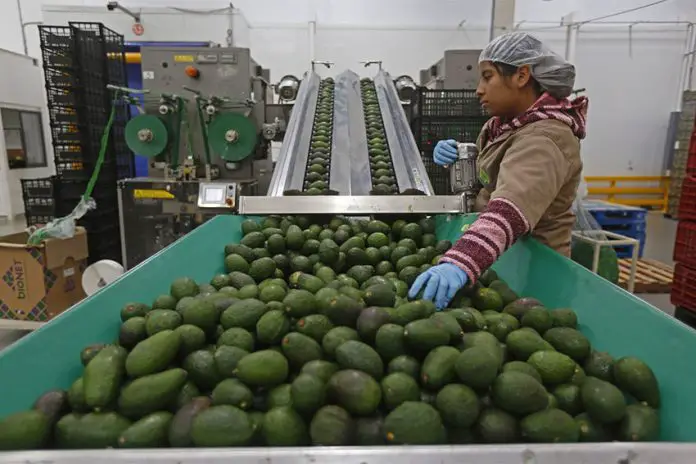Avocado exports have been spiking, and the amount of land farmers are using to cultivate the fruit — known as “green gold” — has expanded dramatically in the past four decades. A recent study conducted by economists at BBVA bank found that the amount of land used for avocado farming in Mexico more than tripled over a 40-year period.
BBVA Research also reported that avocados have become one of Mexico’s principal commodities for export and domestic consumption. It found that in 2003, avocado farmers across the country earned 22 billion pesos (about US $2 billion back then), whereas in 2022, avocado sales surpassed 66 billion pesos (about US $3.9 billion).

The study illustrates how the avocado has gained increasing relevance in Mexico’s economy by examining the total area used for avocado farming in Mexico, as well as figures for production, sales and exports.
The BBVA Research team found that in 2020, there were 241,100 hectares (596,000 acres) dedicated to avocado production, 268.6% more than in 1980, when that number was just 65,400 hectares (161,600 acres). In 2003, 93,500 hectares (231,000 acres) were devoted to avocado farming in Mexico.
As a result, avocado production increased from just over 907,000 tonnes in 2000 to more than 2.5 million tonnes in 2022. Much of this increase was driven by exports, which grew from 89,300 tonnes in 2000 to just over 1.2 million tons in 2021.
The BBVA economists noted that “although the domestic market continues to consume more than half of the avocados produced, the export market has grown from just 9.8% in 2000 to 41% in 2022.”
That increase by 31.2 percentage points is remarkable when taking into account that domestic consumption also grew by 83% (from 818,000 tonnes to 1.5 million tonnes) during that same period.

Avocado sales peaked in 2019, the year before the COVID-19 pandemic struck, bringing in 74.6 billion pesos (US $4.4 billion).
The BBVA report also broke down revenues by state, with Michoacán and Jalisco leading the way — not surprising given that these are the only two states in Mexico authorized by U.S. officials to export to the United States, which is by far the biggest importer of Mexican avocados.
83% of the country’s avocado exports go to Mexico’s northern neighbor.
Avocado farming: a recipe for environmental damage?
The increase in land in Mexico used for avocado farming has caused concern for a number of reasons.
In February, six U.S. senators raised concerns about Mexican avocados farmed on illegally deforested land, urging the U.S. government to work with Mexico “to prevent the sale of avocados grown on illegally deforested lands to American consumers.” A November 2023 report by the U.S. nonprofit Climate Rights International documented how forests in Mexico are being illegally cleared in Jalisco and Michoacán to make way for avocado farming, producing avocados that end up exported to the U.S.
Avocado farming is also becoming a water issue in Mexico: last month, Indigenous villagers living alongside Lake Zirahuén in Michoacán dismantled illegal pumping equipment that was siphoning water from the lake to irrigate nearby avocado farms.
The incident occurred just weeks after local and federal authorities had established a joint operation to halt illegal pumping from Lake Pátzcuaro.
With reports from La Jornada and Milenio
